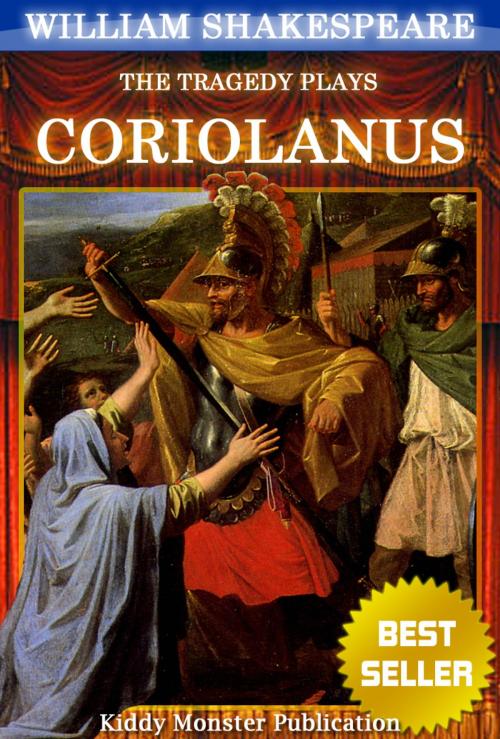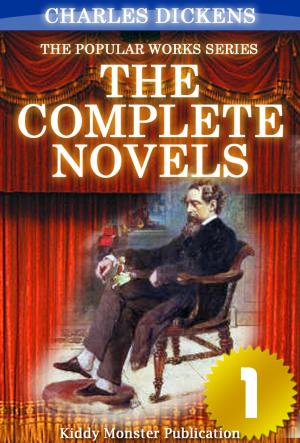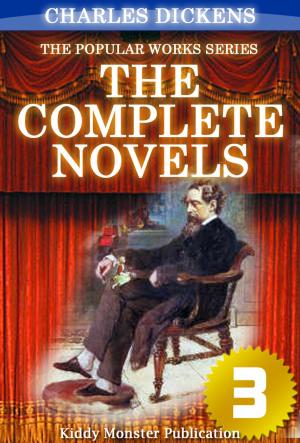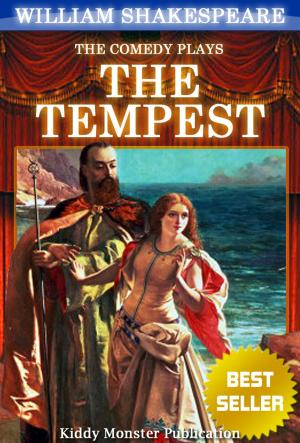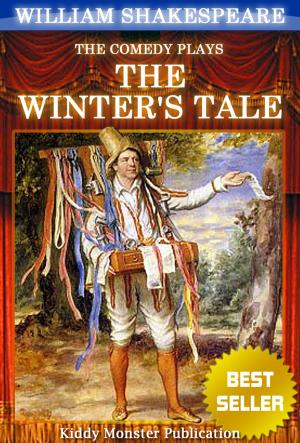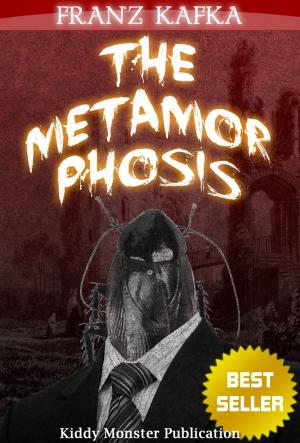Coriolanus By William Shakespeare
With 30+ Original Illustrations,Summary and Free Audio Book Link
Fiction & Literature, Literary Theory & Criticism, Drama History & Criticism, Nonfiction, Entertainment, Drama, Shakespeare| Author: | William Shakespeare | ISBN: | 9789879990643 |
| Publisher: | Kiddy Monster Publication | Publication: | February 10, 2013 |
| Imprint: | Language: | English |
| Author: | William Shakespeare |
| ISBN: | 9789879990643 |
| Publisher: | Kiddy Monster Publication |
| Publication: | February 10, 2013 |
| Imprint: | |
| Language: | English |
Coriolanus By William Shakespeare - With 30+ Original Illustrations,Summary and Free Audio Book Link
FEATURES:
• Title contains every original Illustrations from Danziel Brothers.
• Title contains Summary
• FREE audio book link at the end of the book
• William Shakespeare's Biography
• William Shakespeare's Top Quotes
• Easy to navigated Active Table of Contents
• High formatting quality and standards, manually crafted by professionals
Coriolanus is a tragedy by William Shakespeare, believed to have been written between 1605 and 1608. The play is based on the life of the legendary Roman leader Caius Marcius Coriolanus.
The play opens in Rome shortly after the expulsion of the Tarquin kings. There are riots in progress, after stores of grain were withheld from ordinary citizens. The rioters are particularly angry at Caius Martius, a brilliant Roman general whom they blame for the grain being taken away. The rioters encounter a patrician named Menenius Agrippa, as well as Caius Martius himself. Menenius tries to calm the rioters, while Martius is openly contemptuous, and says that the plebeians were not worthy of the grain because of their lack of military service. Two of the tribunes of Rome, Brutus and Sicinius, privately denounce Martius. He leaves Rome after news arrives that a Volscian army is in the field.
The commander of the Volscian army, Tullus Aufidius, has fought Martius on several occasions and considers him a blood enemy. The Roman army is commanded by Cominius, with Martius as his deputy. While Cominius takes his soldiers to meet Aufidius' army, Martius leads a rally against the Volscian city of Corioles. The siege of Corioles is initially unsuccessful, but Martius is able to force open the gates of the city, and the Romans conquer it. Even though he is exhausted from the fighting, Martius marches quickly to join Cominius and fight the other Volscian force. Martius and Aufidius meet in single combat, which only ends when Aufidius' own soldiers drag him away from the battle.
In recognition of his great courage, Cominius gives Caius Martius the cognomen of "Coriolanus". When they return to Rome, Coriolanus' mother Volumnia encourages her son to run for consul. Coriolanus is hesitant to do this, but he bows to his mother's wishes. He effortlessly wins the support of the Roman Senate, and seems at first to have won over the commoners as well. However, Brutus and Sicinius scheme to undo Coriolanus and whip up another riot in opposition to his becoming consul. Faced with this opposition, Coriolanus flies into a rage and rails against the concept of popular rule. He compares allowing plebeians to have power over the patricians to allowing "crows to peck the eagles". The two tribunes condemn Coriolanus as a traitor for his words, and order him to be banished. Coriolanus retorts that it is he who banishes Rome from his presence.
After being exiled from Rome, Coriolanus seeks out Aufidius in the Volscian capital of Antium, and offers to let Aufidius kill him in order to spite the country that banished him. Moved by his plight and honoured to fight alongside the great general, Aufidius and his superiors embrace Coriolanus, and allow him to lead a new assault on the city.
Rome, in its panic, tries desperately to persuade Coriolanus to halt his crusade for vengeance, but both Cominius and Menenius fail. Finally, Volumnia is sent to meet with her son, along with Coriolanus' wife Virgilia and child, and a chaste gentlewoman Valeria. Volumnia succeeds in dissuading her son from destroying Rome, and Coriolanus instead concludes a peace treaty between the Volscians and the Romans. When Coriolanus returns to the Volscian capital, conspirators, organised by Aufidius, kill him for his betrayal.
Coriolanus By William Shakespeare - With 30+ Original Illustrations,Summary and Free Audio Book Link
FEATURES:
• Title contains every original Illustrations from Danziel Brothers.
• Title contains Summary
• FREE audio book link at the end of the book
• William Shakespeare's Biography
• William Shakespeare's Top Quotes
• Easy to navigated Active Table of Contents
• High formatting quality and standards, manually crafted by professionals
Coriolanus is a tragedy by William Shakespeare, believed to have been written between 1605 and 1608. The play is based on the life of the legendary Roman leader Caius Marcius Coriolanus.
The play opens in Rome shortly after the expulsion of the Tarquin kings. There are riots in progress, after stores of grain were withheld from ordinary citizens. The rioters are particularly angry at Caius Martius, a brilliant Roman general whom they blame for the grain being taken away. The rioters encounter a patrician named Menenius Agrippa, as well as Caius Martius himself. Menenius tries to calm the rioters, while Martius is openly contemptuous, and says that the plebeians were not worthy of the grain because of their lack of military service. Two of the tribunes of Rome, Brutus and Sicinius, privately denounce Martius. He leaves Rome after news arrives that a Volscian army is in the field.
The commander of the Volscian army, Tullus Aufidius, has fought Martius on several occasions and considers him a blood enemy. The Roman army is commanded by Cominius, with Martius as his deputy. While Cominius takes his soldiers to meet Aufidius' army, Martius leads a rally against the Volscian city of Corioles. The siege of Corioles is initially unsuccessful, but Martius is able to force open the gates of the city, and the Romans conquer it. Even though he is exhausted from the fighting, Martius marches quickly to join Cominius and fight the other Volscian force. Martius and Aufidius meet in single combat, which only ends when Aufidius' own soldiers drag him away from the battle.
In recognition of his great courage, Cominius gives Caius Martius the cognomen of "Coriolanus". When they return to Rome, Coriolanus' mother Volumnia encourages her son to run for consul. Coriolanus is hesitant to do this, but he bows to his mother's wishes. He effortlessly wins the support of the Roman Senate, and seems at first to have won over the commoners as well. However, Brutus and Sicinius scheme to undo Coriolanus and whip up another riot in opposition to his becoming consul. Faced with this opposition, Coriolanus flies into a rage and rails against the concept of popular rule. He compares allowing plebeians to have power over the patricians to allowing "crows to peck the eagles". The two tribunes condemn Coriolanus as a traitor for his words, and order him to be banished. Coriolanus retorts that it is he who banishes Rome from his presence.
After being exiled from Rome, Coriolanus seeks out Aufidius in the Volscian capital of Antium, and offers to let Aufidius kill him in order to spite the country that banished him. Moved by his plight and honoured to fight alongside the great general, Aufidius and his superiors embrace Coriolanus, and allow him to lead a new assault on the city.
Rome, in its panic, tries desperately to persuade Coriolanus to halt his crusade for vengeance, but both Cominius and Menenius fail. Finally, Volumnia is sent to meet with her son, along with Coriolanus' wife Virgilia and child, and a chaste gentlewoman Valeria. Volumnia succeeds in dissuading her son from destroying Rome, and Coriolanus instead concludes a peace treaty between the Volscians and the Romans. When Coriolanus returns to the Volscian capital, conspirators, organised by Aufidius, kill him for his betrayal.
